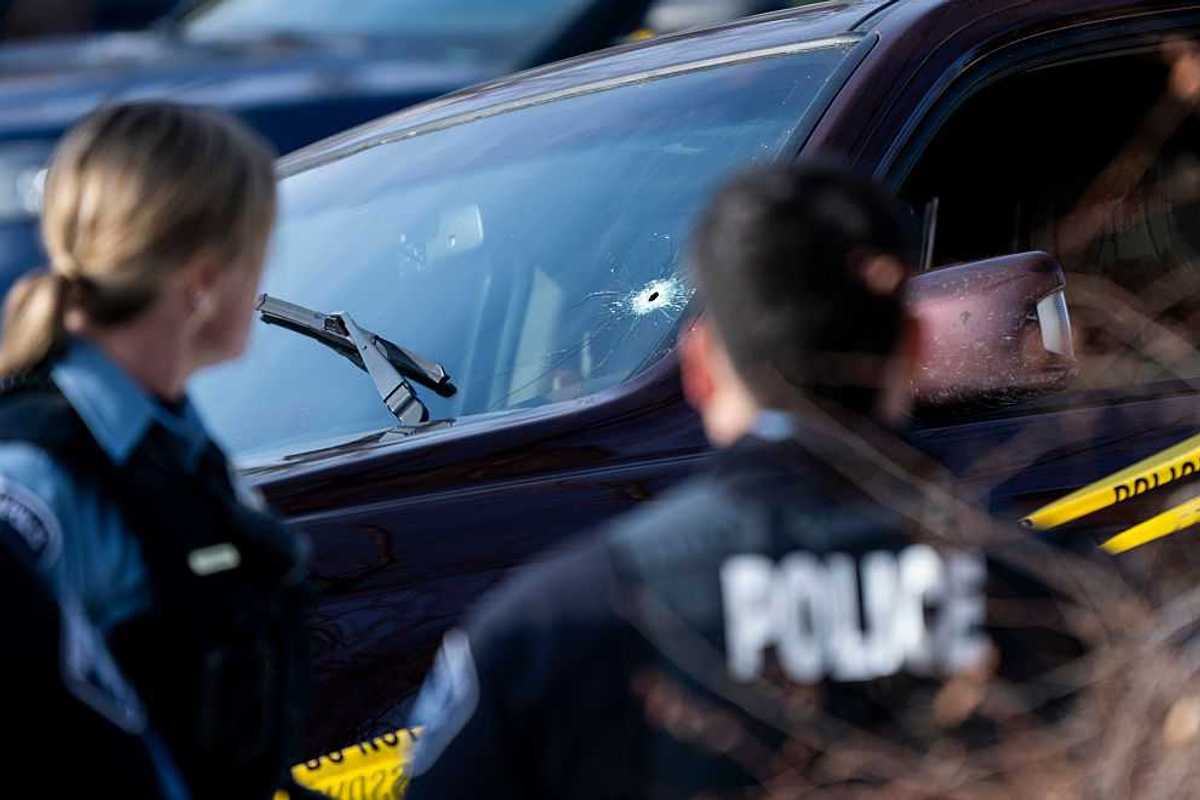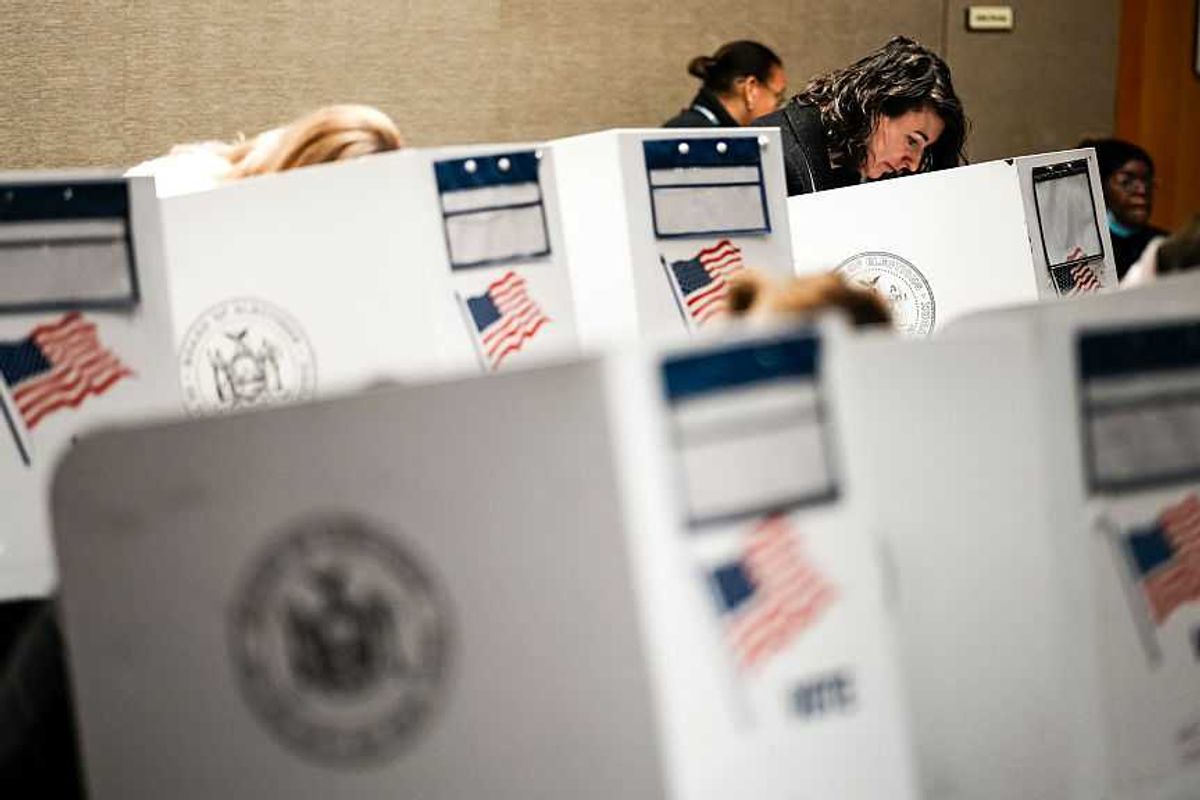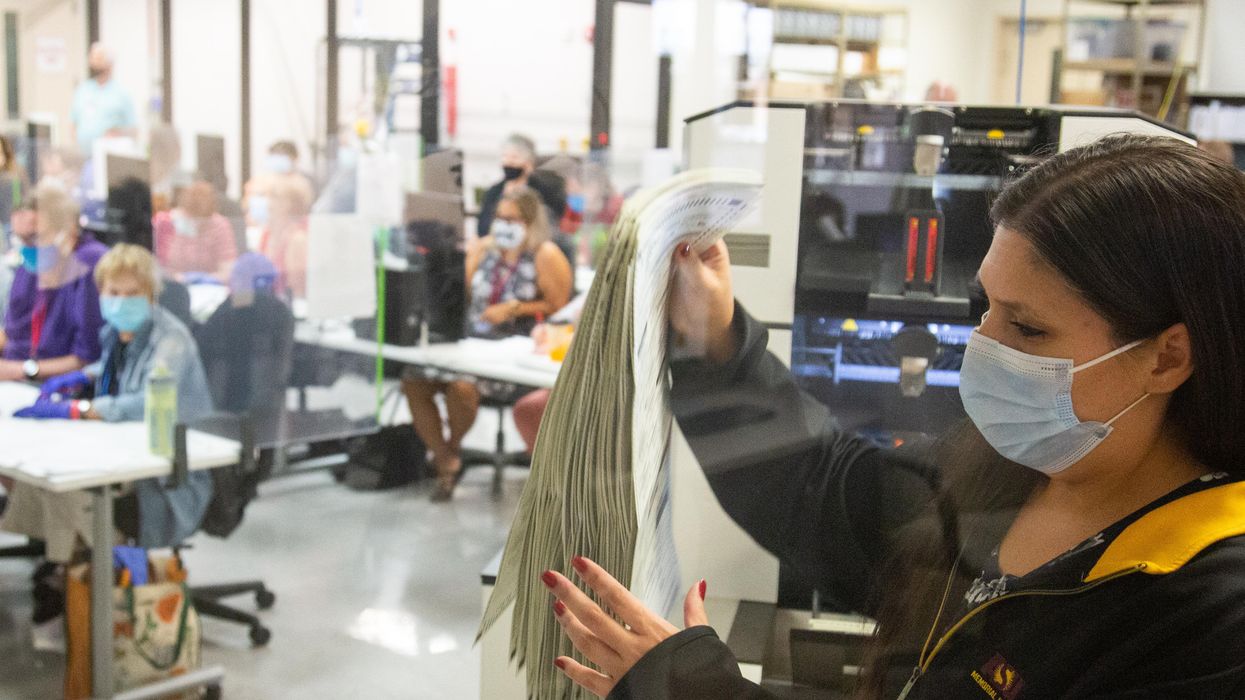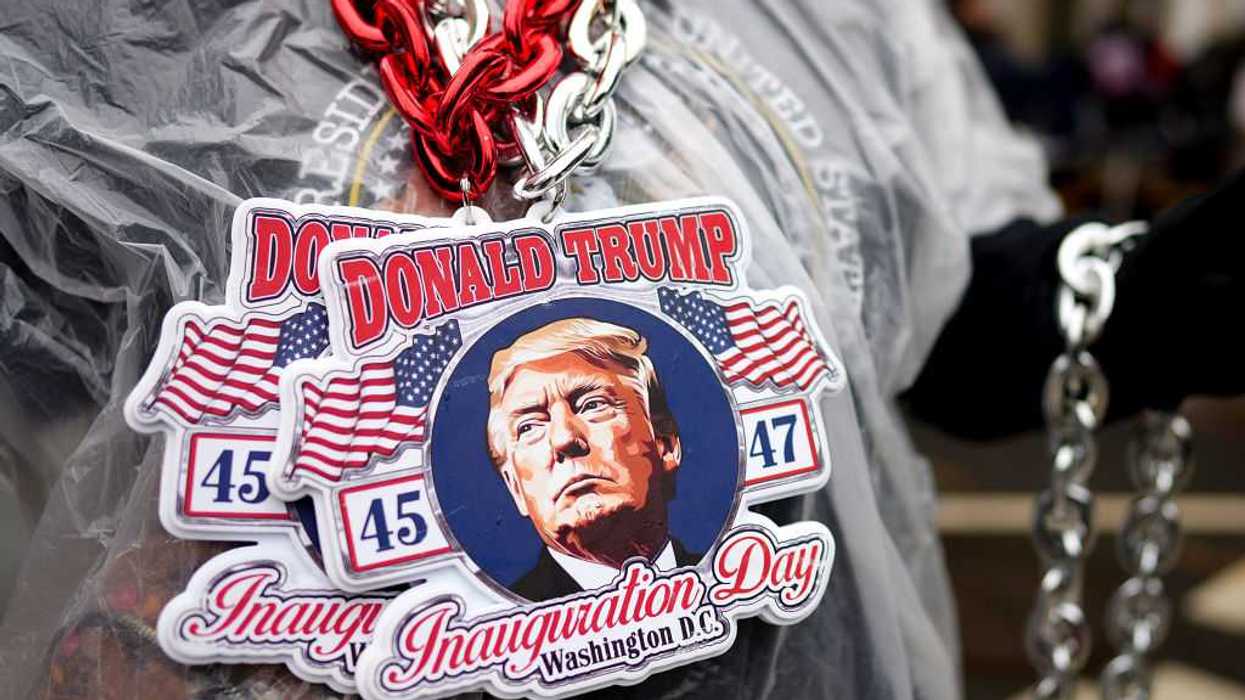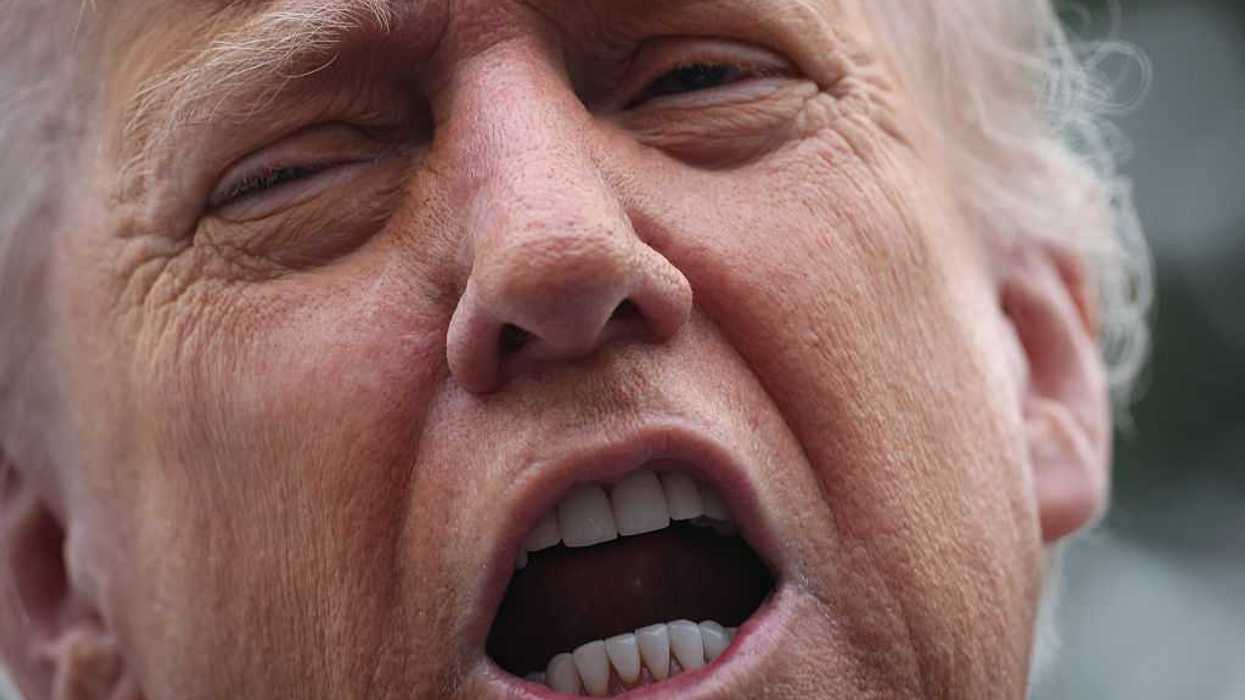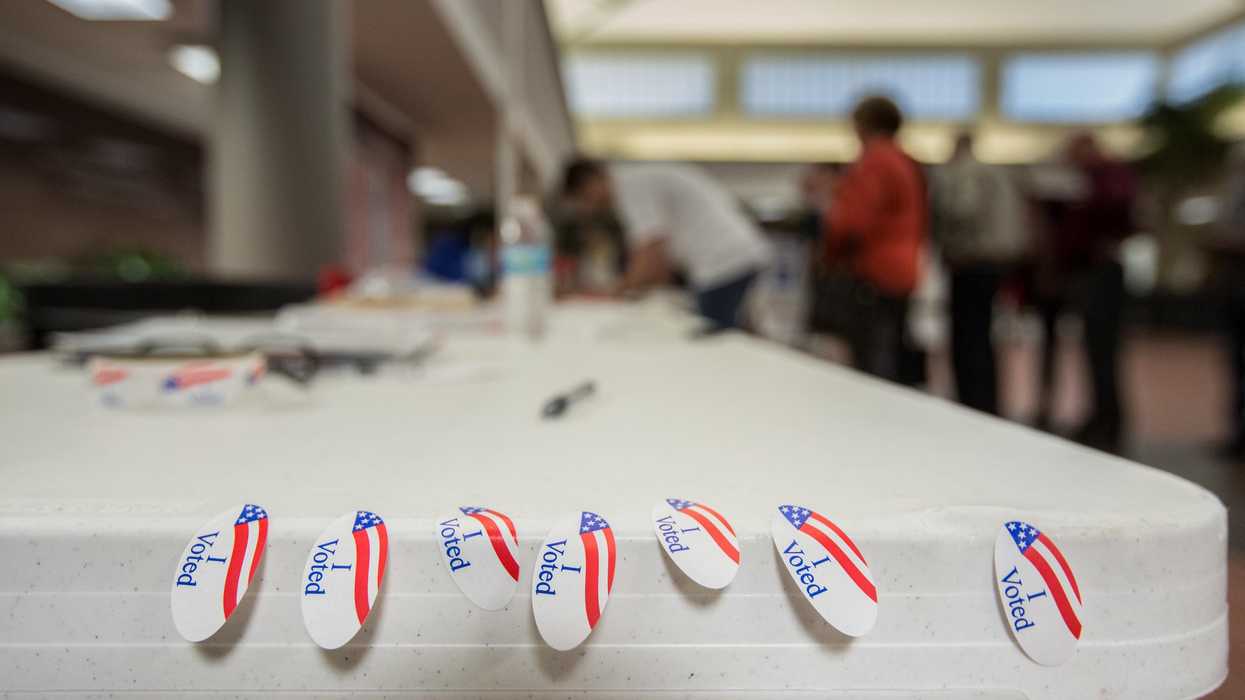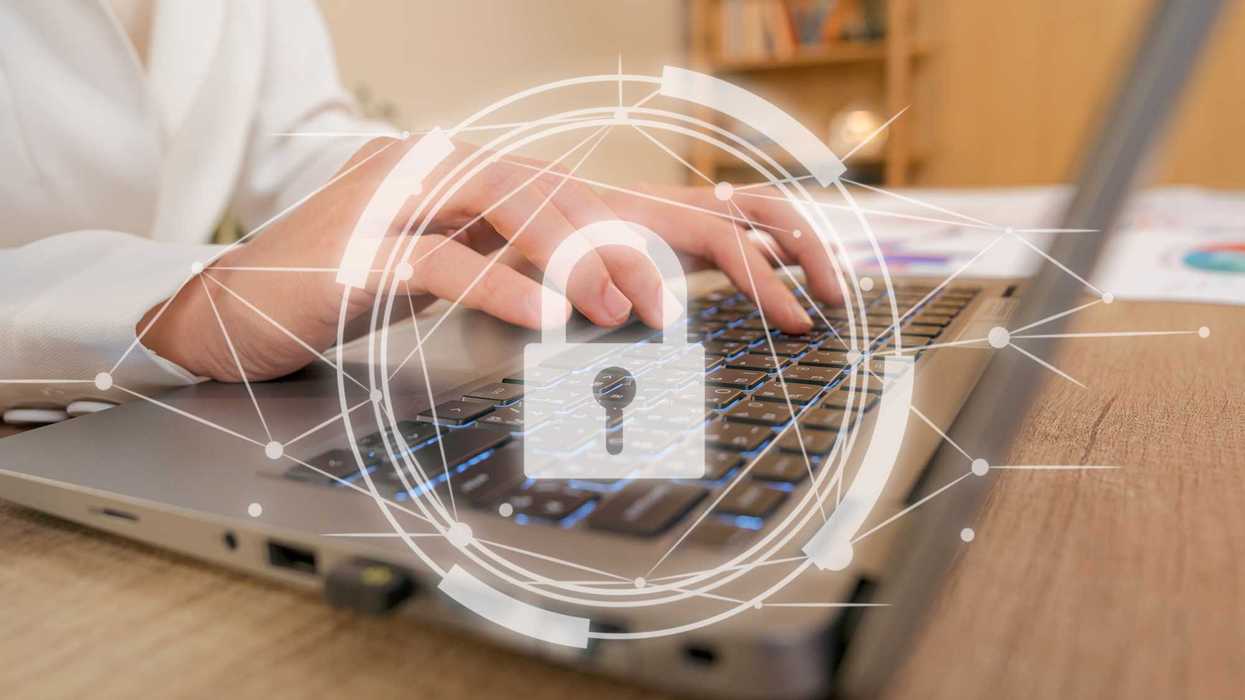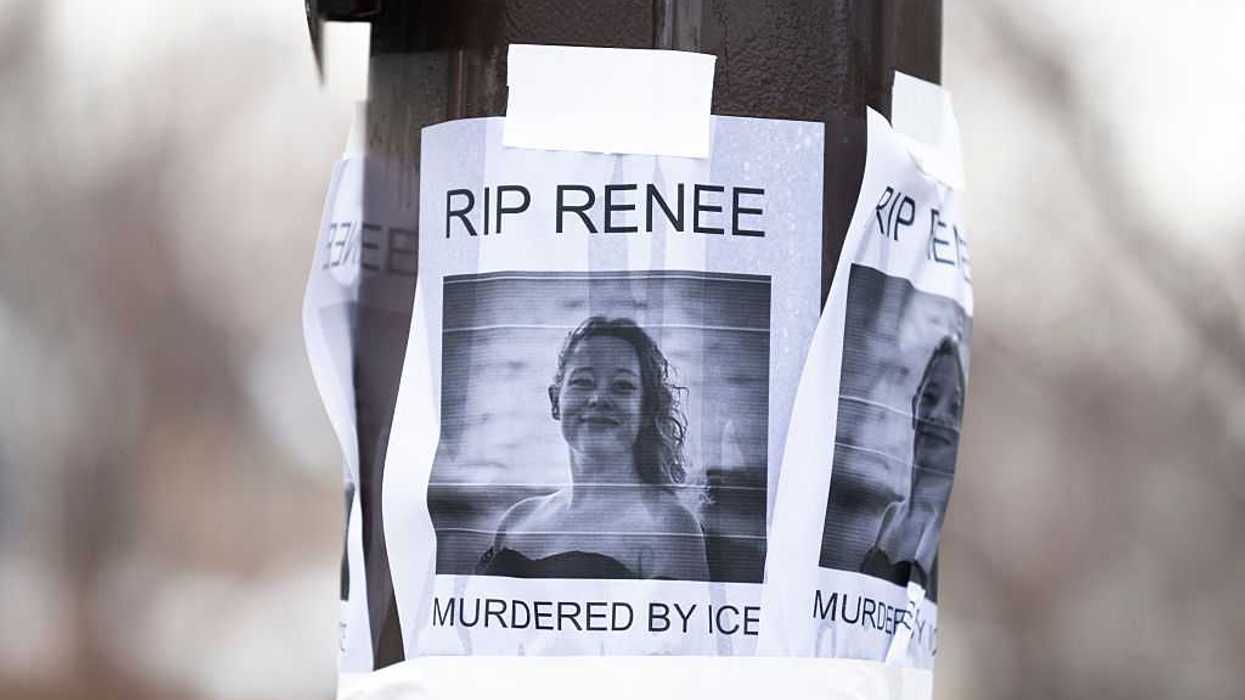Rosenfeld is the editor of Voting Booth, a project of the Independent Media Institute.
Maricopa County Supervisor Steve Gallardo had heard enough. Half an hour into the board's consideration two weeks ago of a "forensic" election audit — where two outside firms would assess if the voting system used in Arizona last fall had been infiltrated and the results altered — the former state senator said his vote in favor "was a tough pill to swallow."
"We had our presidential preference election, not one complaint," said Gallardo, a Democrat. "We had our primary election in August. Not one complaint. Everyone was happy. We had our general election. No complaint, until a day or two after the general election, when some folks in our community and across this country started looking at the results."
Arizona had the second-closest presidential outcome of any state in 2020, with Joe Biden prevailing by only 10,500 votes — a margin of just three tenths of 1 percentage point over Donald Trump. That margin (only Georgia's was narrower) still did not trigger a recount. But since the Arizona outcome was certified, the defeated president's supporters, including several members of the Legislature, have pressed their attacks against the legitimacy of the results — raising questions about what proof, if any, will ever convince them, and whether the most crucial balloting data that could verify the results is being preserved and made public.
The supervisors governing Arizona's most populous county voted unanimously to begin the audit of their system's hardware and software. And in the state Senate, Republicans who supported Trump have demanded the county turn over all its voting machines and 2.1 million ballots.
The county has refused, even as Trump supporters are urging the Senate to seize the machinery and the paper. Trump's team, including his personal lawyer Rudy Giuliani, speculated in Arizona testimony that Trump votes were secretly turned into Biden votes. Those allegations are part of what has led Dominion Voting Systems, which made the equipment, to sue Giuliani for $1.3 billion. (The company has filed 2,912-pages of exhibits detailing Giuliani's allegedly false statements.)
This fight in Arizona centers on what evidence could be used to satisfy voters that election results are accurate and legitimate.
Seen from afar, Arizona is a national leader in transparent elections. As Sambo Dul, the state elections director, told the National Association of State Election Directors during its recent conference, every step of the process is "aimed at ensuring the security and integrity of our system."
Dul cited programming the voting system without being connected to the internet, using hand-marked paper ballots, the testing of machinery before and after the election — and the audits of reported results, including verifying results before certifying winners. These steps all occurred, and no hints surfaced that the results were wrong.
Maricopa County's audit will go further, Scott Jarrett, director of Election Day and emergency voting for the county, told the county supervisors in January. A forensic audit, he said, will "determine and identify whether our electronic equipment is accurate, reliable and secure."
What the audit will not do, however, is examine what may be the most important part of the vote-counting evidence trail: the computer files created to count votes and the activity logs documenting that process.
The latest voting systems, including those used in and around Phoenix, do not count paper ballots directly. Instead, scanners create a digital image of every ballot card. The images are then analyzed by software, which creates a grid that correlates ink marks (votes) with each ballot's choices. The resulting tally, a spreadsheet of sorts, is built into the vote count. That tally is called the cast vote record.
And it won't be part of the final doublecheck of Arizona's outcome.
In the middle of 2020, lawyers aligned with the Florida Democratic Party sued the state's eight largest counties to force them to preserve ballot images as public election records. The counties agreed to do so in the event of a presidential recount, which was not needed because Trump won the state decicively. Meanwhile, starting this year, Florida will allow its counties to use ballot images in recounts.
Since the Civil Rights Act was enacted in 1965, all materials used in federal elections must be preserved for 22 months. However, that retention requirement predates today's voting systems and has not been updated, even though state and federal election officials have been gradually acknowledging this data is crucial.
For several years, Maryland has used ballot image audits to verify its results before certifying winners. And this week the federal Election Assistance Commission adopted a new, voluntary set of best practices for the states that refers to ballot images but does not urge the states to save them. The massive election reform bill introduced by congressional Democrats, known as HR 1, does not update the election records retention requirements for digital data.
Republicans have also cited digital evidence to push back on conspiracy theories. In Georgia, Gabriel Sterling, the state election operations manager, told the press that his staff used the activity logs in scanners to identify why several thousand votes for Trump were not counted on election night. Basically, the data was not transferred from the precinct scanners to the county's tabulation system. Those votes were added to Trump's totals, although the number was far short of what was needed to change the outcome.
In the Arizona's Senate, pro-Trump Republicans are still seeking to prove Biden didn't win the state. Meanwhile, Maricopa County's audit of its election machinery — but not its presidential ballots and vote count evidence trail — began last week.
"Our equipment is ready," Jarrett said. "It has not been tampered with. It's still in the same state it was during the election and then the post-election."


